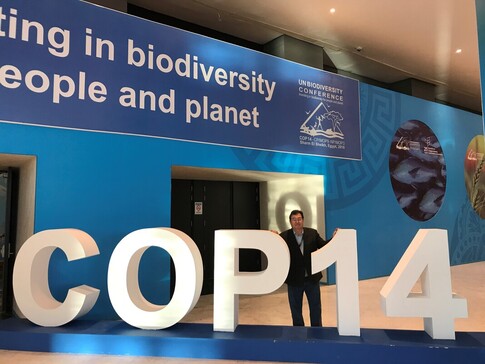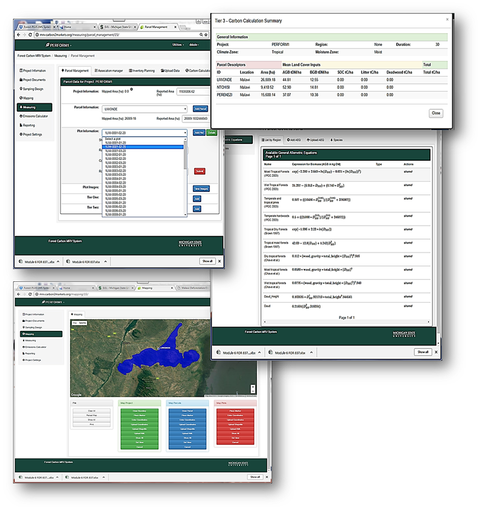Basic Research

Our lab at Michigan State University has worked on carbon cycle research related to global climate change since 1990. The focus on the work has been on the role of tropical forests in climate change through the global carbon cycle. Nearly 20% of the global emissions of greenhouse gases are from deforestation in the tropical forests. Having started our work in the Amazon, they are now also involved in Africa and Asia. Although the focus on early work was on land cover change in closed canopy tropical rain forests, a topic that is still being studied, new work has shifted to woodlands as well as trees outside of forests in agriculture. The approach uses ground measurements and earth observing systems at landscape and continental scales. The lab operates its basic research under the Global Observatory for Ecosystem Services.
Actionable Science

With advances that global change science has made pushing the policy community toward significant actions on climate change mitigation and adaptation, the lab has focused on efforts to take 20+ years of science out of the lab into application. The main focus as been on international policy for reducing emissions from deforestation and degradation, REDD+. There has also been a strong effort to support carbon finance. Further, the lab is using carbon management as an economic development strategy that links low carbon management in forests and tree based systems (e.g. agroforestry) to poverty alleviation and enhancement of livelihoods in developing countries as a development model. The lab team operates its actionable science under the Carbon2Markets program, a non profit enterprise.
Capacity Building

The transfer of knowledge is an important part of our approach. We focus on delivery of basic knowledge on forest carbon measurement and management, and practical capacity building for both in-service professionals and formal education. We have a capacity building model that can be deployed in the field, which includes sequential training leading to development of actual prototype products for forest carbon emissions and removals estimation, building programs and projects, and institutional strengthening. Scales range from community to national governments. We deploy web technologies to deliver Distance Learning capacities, either customized in country or delivered from MSU online, or both.
Technology

We integrate research, actionable science, and capacity building through technology. We use the internet for delivery of database-backed knowledge management platforms on the web. We focus on earth observation methods for forest carbon monitoring, carbon data and inventory management, GHG estimation and inventory and distance learning. Our Knowledge Management platform provides cloud-based MRV tools. Our Distance Learning platform provides online access to detailed content for non-credit courses from GOES-MSU focused on a range of REDD+ and forest carbon management applications at no cost.